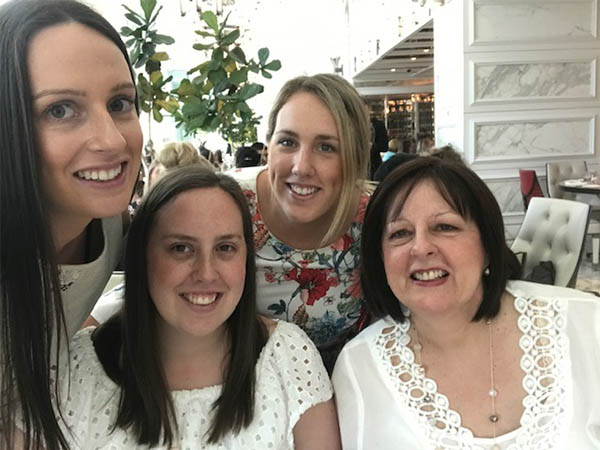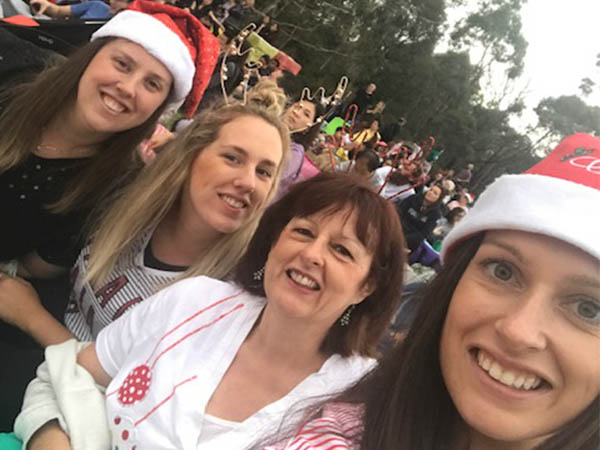
Photo caption: Breast cancer survivor, Jenni with her daughters.
Working in the health insurance industry was an advantage when Jenni was diagnosed with aggressive breast cancer in 2017. She had to make life-changing treatment decisions in days, under extreme stress.
“I got all the results from breast screen and saw a doctor and he told me I had breast cancer in both my breasts,” Jenni said. “That was a Wednesday and I was in hospital the next Monday having surgery. The results of that weren’t good, so I went back in the next Monday and had a double mastectomy.
“All of a sudden I was on this path where I had no control and I was just in shock.”
Jenni’s work meant she had private health insurance, a good understanding of the cost of cancer, and knew that the specialists you choose greatly impacts your out-of-pocket costs.
“My job has been an advantage in my situation because I understand how it all works,” she said.
“I've seen some of the costs for some of our members, so I have a pretty good view of what's happening out there.”
Out-of-pocket expenses vary according to the doctor, hospital, treatment, private health fund, policy and the policy excess.
In Australia’s private health system, a handful of specialists are charging more than twice the official Medicare Benefit Schedule (MBS) fee for medical services. Only about 7% of services are charged at this rate but these account for almost 90% of all private medical gap fees.

Photo caption: From left to right; Jane, Stephanie, Jenni and Hayley.
“Generally speaking, my run's been pretty good,” said Jenni. “I got my surgery straight away. I got the surgeon that I wanted. Then, I went onto the oncologist, my chemo ... there was no cost for that. There was a small out of pocket for the consultation when I saw my oncologist and then 12 months later, I did decide to have a reconstruction.”
Because Jenni’s seen firsthand the disparity of costs, she now wants to use her experience to help others.
“I have actually been quite shocked sometimes at someone that's having breast surgery and their associated out-of-pocket costs for their surgeon.”
“Some surgeons charge way too much out-of-pocket fees,” she said. “That’s where the main problem is with private insurance. Some of them charge an extraordinary amount and this person is already under a lot of duress.
“It is not equal for everybody. There are some wonderful, wonderful doctors and surgeons out there and everyone that I've had has made me feel secure and safe and well cared for. They've shown empathy and I feel that they care for me, but I know they're not all like that. To charge someone thousands of dollars for their mastectomy is just not fair.”
ACTION: Addressing the cost of treatment is an urgent priority for Cancer Council Victoria and is in our submission to the Victorian Cancer Plan. We’re advocating for the implementation of an informed financial consent standard and encouraging Victorian clinicians and health services to sign up to it. Learn more.
When asked what advice she has for people trying to make sense of the costs of cancer she shared the following:
“Well, I would just say to them, you have choices,” she said. “When you're private just make sure you get all your costs upfront, ask the questions, how much is this going to cost me?
“The doctors need to give quotes in writing and if one doctor's too expensive, go and see somebody else. You can go to your GP and get a referral to somebody else that may not be as expensive.
“I just think it will help people if they have more of an understanding in general about our health system. Private versus public, it is complicated and difficult for people to understand.”
Get involved
If you’ve been affected by cancer and would like to use your experience to help others, please register your interest.
Learn more